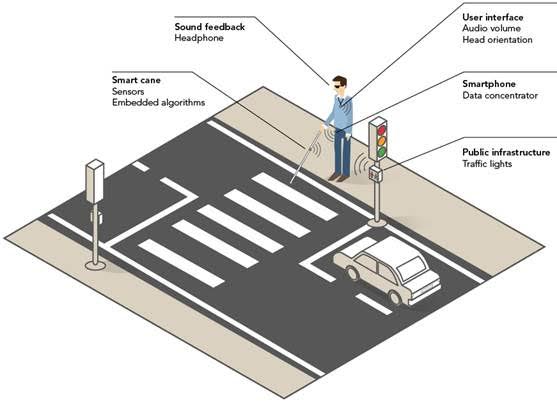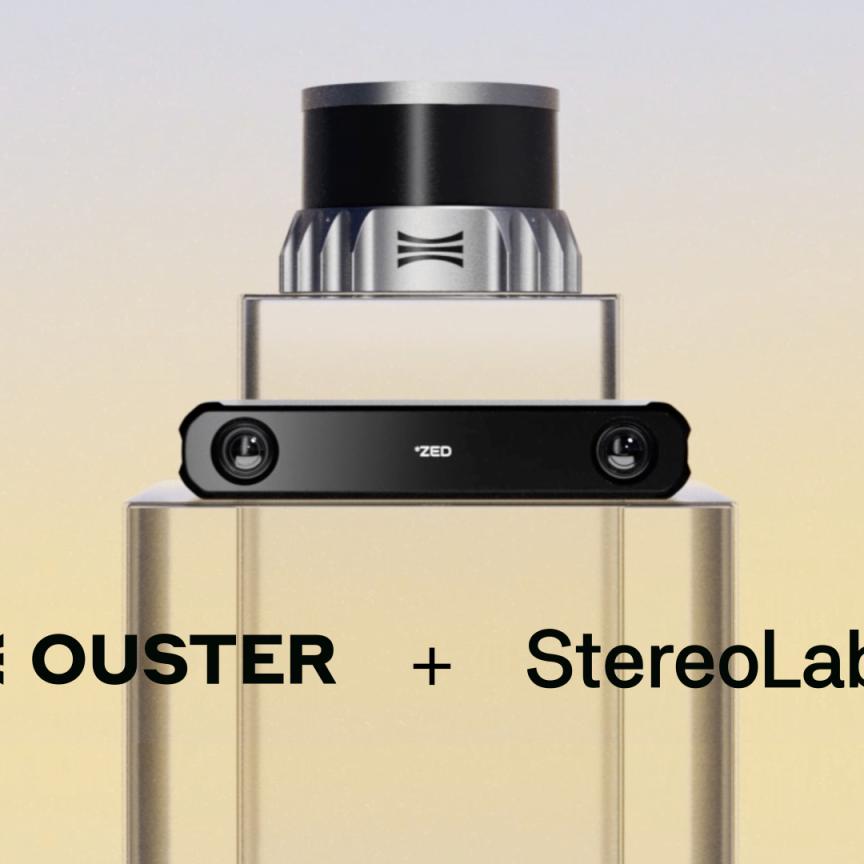A three-year European collaborative project, Inspex, which aims to develop a wearable obstacle-detection system based on autonomous vehicle technology, has begun. The portable device could aid in smart manufacturing, guide robotic drones and assist the visually impaired.

The Inspex system will first be demonstrated inside a white cane for the visually impaired. (Credit: Leti)
Coordinated by Leti, a technology research institute of CEA Tech, and drawing on the expertise and technologies of nine partners, the Inspex system will employ lidar, UWB radar and MEMS ultrasound sensors to detect 3D obstacles in real-time, even in harsh weather conditions. Inspex will miniaturise and reduce the power consumption of each element to ease their integration in the new system.
The sensors will be co-integrated with an inertial measurement unit, environmental sensing, signal and data processing, and power efficient data fusion within a miniature, low-power system designed to operate within Internet of Things environments.
‘Sophisticated obstacle-detection systems, such as those in autonomous vehicles, are typically large and heavy, have high power consumption and require large computational capabilities,’ said Suzanne Lesecq, project coordinator at Leti. ‘The Inspex team will work together to miniaturise and adapt this technology for individual and personal applications, which will require even greater capability for all-conditions obstacle detection. The project is a strong example of European innovation to bring leading-edge technology to a broader segment of users.’
The system will be demonstrated initially inside a white cane for the visually impaired, providing 3D spatial audio feedback on obstacle location. The Inspex system is also expected to have applications in human mobility, instrumentation and smart factories.
Project Partners
Leti, the University of Manchester, Cork Institute of Technology, STMicroelectronics, Swiss Center for Electronics and Microtechnology CSEM, Tyndall National Institute University College Cork, University of Namur ASBL, GoSense and SensL Technologies.

